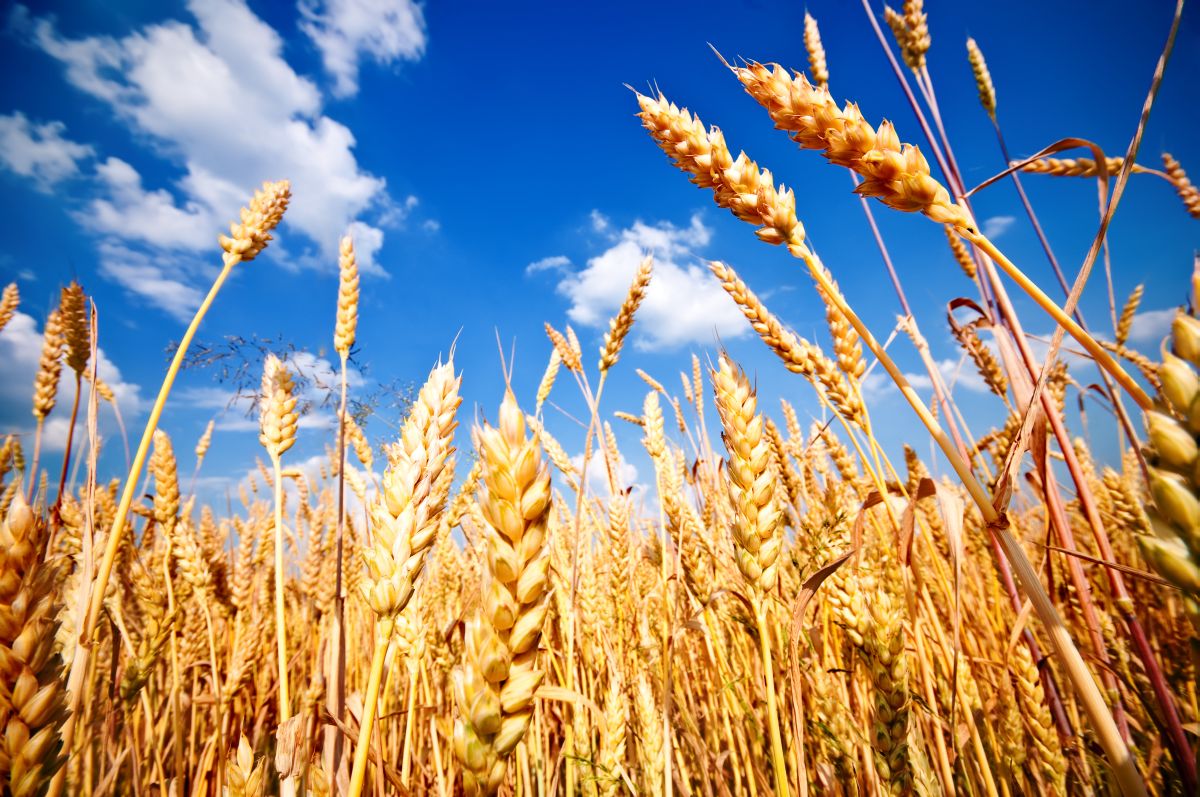
Rothamsted Research has submitted an application to the government for permission to carry out GM field trials, with goal to develop a GM wheat capable of higher yield potential.
Scientists have developed wheat plants that can carry out photosynthesis more efficiently i.e. convert light energy into plant biomass more efficiently.
This trait has the potential to result in higher yielding plants, the scientists say. The purpose of the proposed trial is to evaluate the performance of the engineered plants in the field.
Ensuring food security is a major challenge given the projected need to increase world food production by 40% in the next 20 years and 70% by 2050. Wheat is one of the major grain crops worldwide and provides approximately one-fifth of the total calories consumed globally.

However, wheat yields have reached a plateau in recent years and predictions are that yield gains will not reach the level required to feed the 9 billion population predicted for 2050. Traditional breeding and agronomic approaches have maximised light capture and allocation to the grain. A promising but as yet-unexploited route to increase wheat yields is to improve the efficiency by which energy in the form of light is converted to wheat biomass.
Organisations, such as the Soil Association, have criticised plans to further develop GM. "The GM industry has been promising for decades that genetically modified crops will revolutionise farming—even solve world hunger, but none of their promises have come to fruition," the Soil Association said.
"They’ve promised higher yields and improved nutritional value, but have failed to produce even one commercially viable example. Pest-resistance, blight-resistance, and tolerance of drought, flood, and salinity—all of these traits can be produced far more quickly and cost-effectively through non-GM breeding practices; GM products don’t even come close."
Improving the efficiency of photosynthesis
But the scientists say their work could help end the plateau seen in global wheat yields, and address food security concerns.
Professor Christine Raines, Head of the School of Biological Sciences at the University of Essex and principal investigator for the research project, said: “The efficiency of the process of photosynthesis integrated over the season is the major determinant of crop yield.
“However, to date photosynthesis has not been used to select for high yielding crops in conventional breeding programmes and represents an unexploited opportunity. But there is now evidence that improving the efficiency of photosynthesis by genetic modification is one of the promising approaches to achieve higher wheat yield potential.
“In this project we have genetically modified wheat plants to increase the efficiency of the conversion of energy from sunlight into biomass. We have shown that these plants carry out photosynthesis more efficiently in glasshouse conditions.”
Dr Elizabete Carmo-Silva, co-investigator in this project at Lancaster University, added: “If granted permission to carry out the field trial, we will measure the photosynthetic efficiency of the plants in the field and we will determine total above ground plant biomass and grain yield on an area basis at full maturity.”
Dr Malcolm Hawkesford, Head of the Plant Biology and Crop Science Department at Rothamsted Research and lead scientist at Rothamsted for this trial said: “We will be able to assess in ‘real environmental conditions’ the potential of these plants to ultimately produce more using the same resources and land area as their non-GM counterparts.
“These field trials are the only way to assess the viability of a solution that can bring economic benefits to the farmers, returns to the UK tax payer of the long-term investment in this research, benefits to the UK economy as a whole and the environment in general.”
